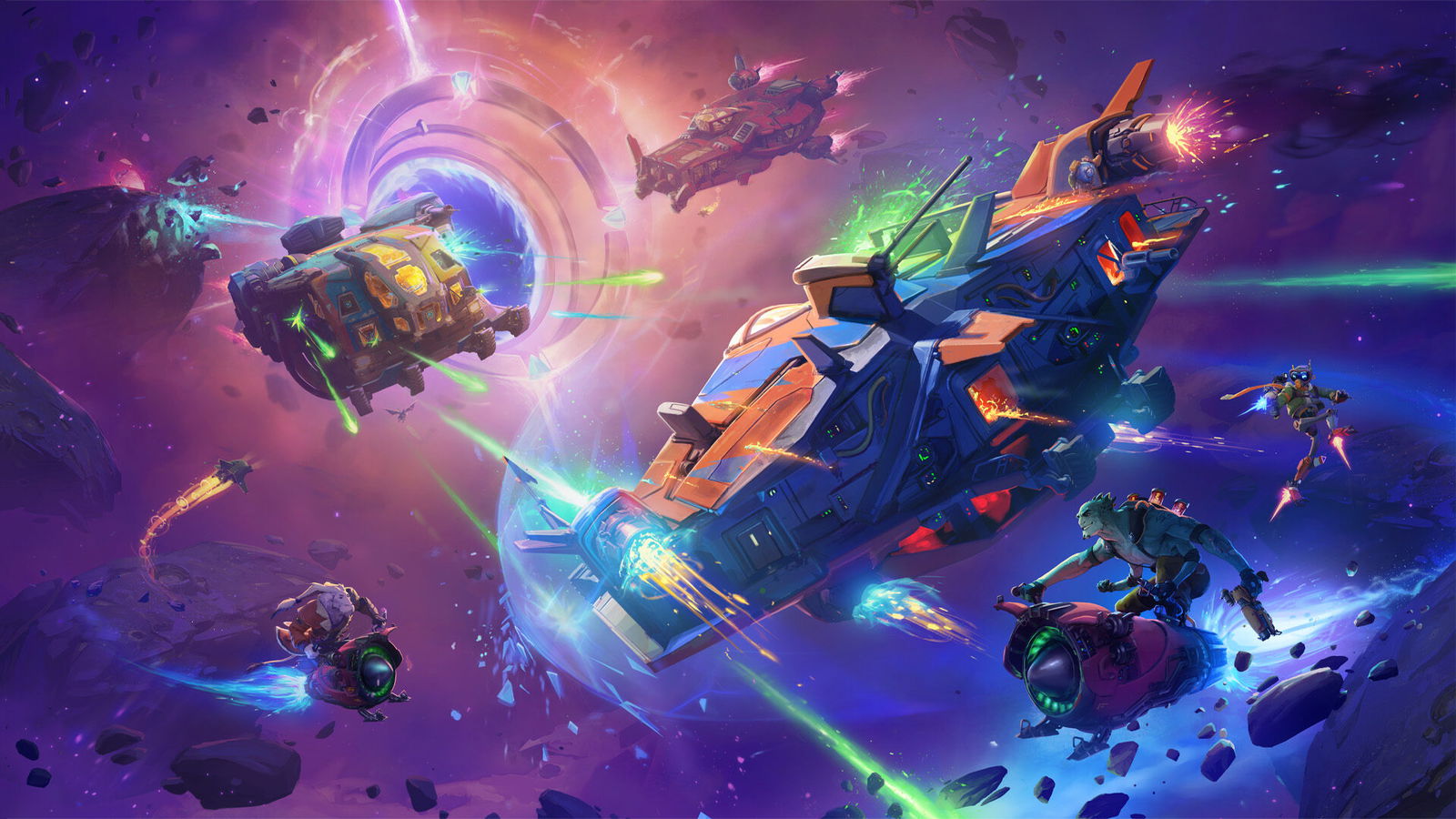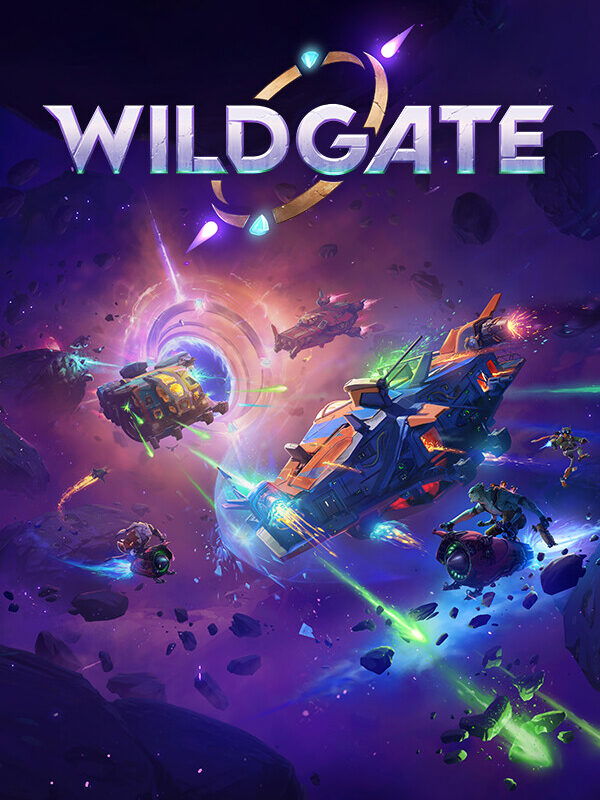I was intrigued by Wildgate when I got a first look at it a few weeks ago. As I’ve gotten older, I’ve started leaning away from online-multiplayer only games, and it’s been a while since I played a big co-op PVP game like Guns of Icarus Online, or, more recently, Sea of Thieves, so I was excited to play a similar kind of game with a more focused direction and some pretty interesting ideas behind it.
Wildgate is something of a mixed bag. At its core, it’s a pretty fun game, and it absolutely nails the fundamentals of a multiplayer experience, but by that same token, every match really depends on both your team and how your opponents choose to play. However, for better or worse, this game does have a lot to offer.
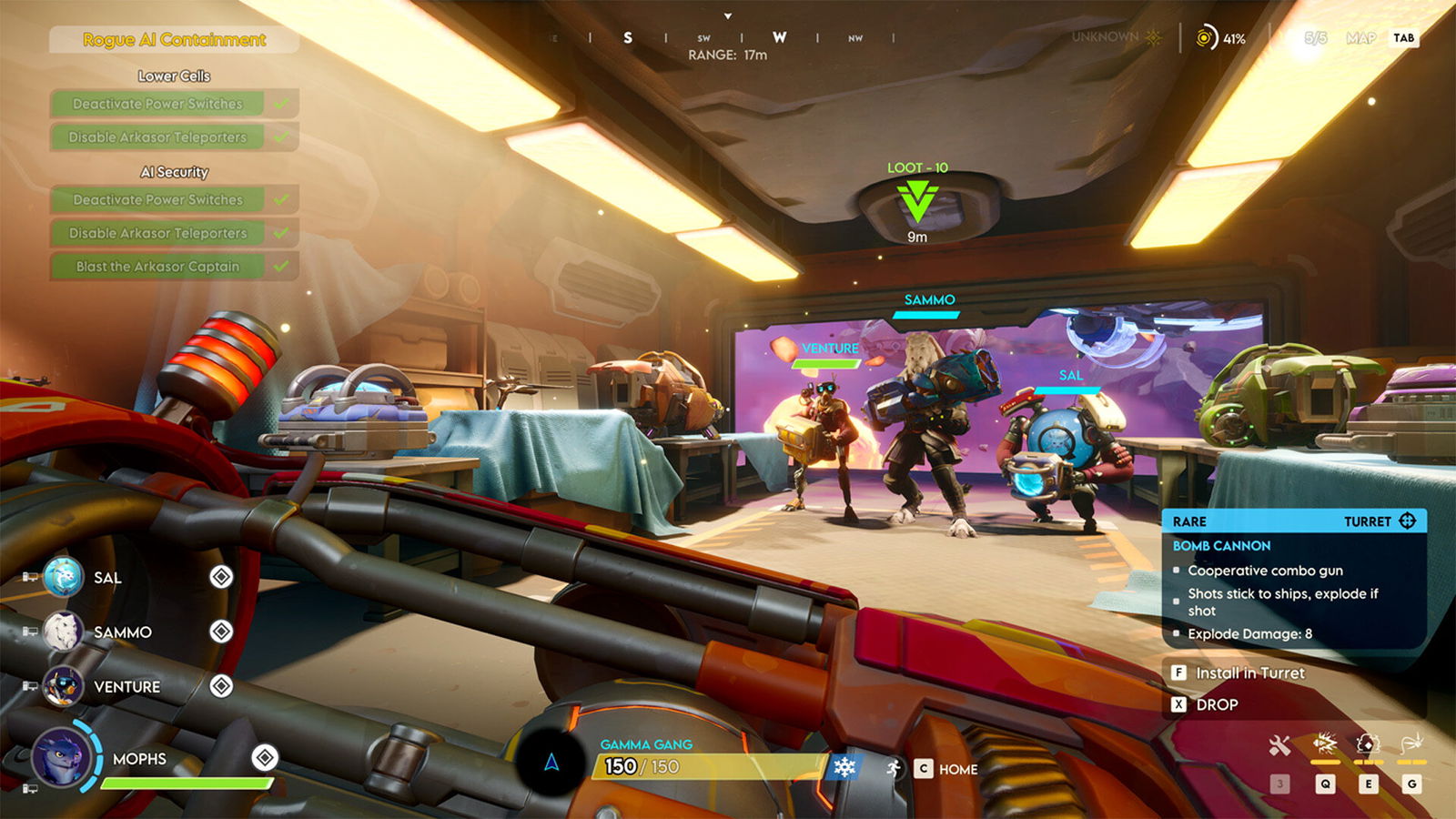
The premise of Wildgate is simple. In a far-off corner of the galaxy, a place known as the is filled with the lost relics of ancient civilizations. Players take on the role of Prospectors who brave the dangers of the Reach while competing against each other to claim these artifacts and escape through the portals known as Wildgates.
It’s a solid enough idea to set the foundation of the gameplay, essentially creating a galaxy-sized version of Knowhere and incentivizing brave rogues to fight for the riches within. However, Wildgate does have small story arcs that play out with every season as well as narratively “adventures” that, while serving as each character’s set of level-up rewards, also give a little bit of context to their backstory.
But where Wildgate really shines is in its gameplay. Teams of four are given a ship, placed on a giant map and need to explore various ruins in order to find upgrades to their weapons and defences, or locate the Artifact and make it to the Wildgate alive. It’s an interesting mix of exploration, ship management and first-person combat that requires cunning and coordination in order to achieve victory. And I gotta say, when it’s working, it really works.
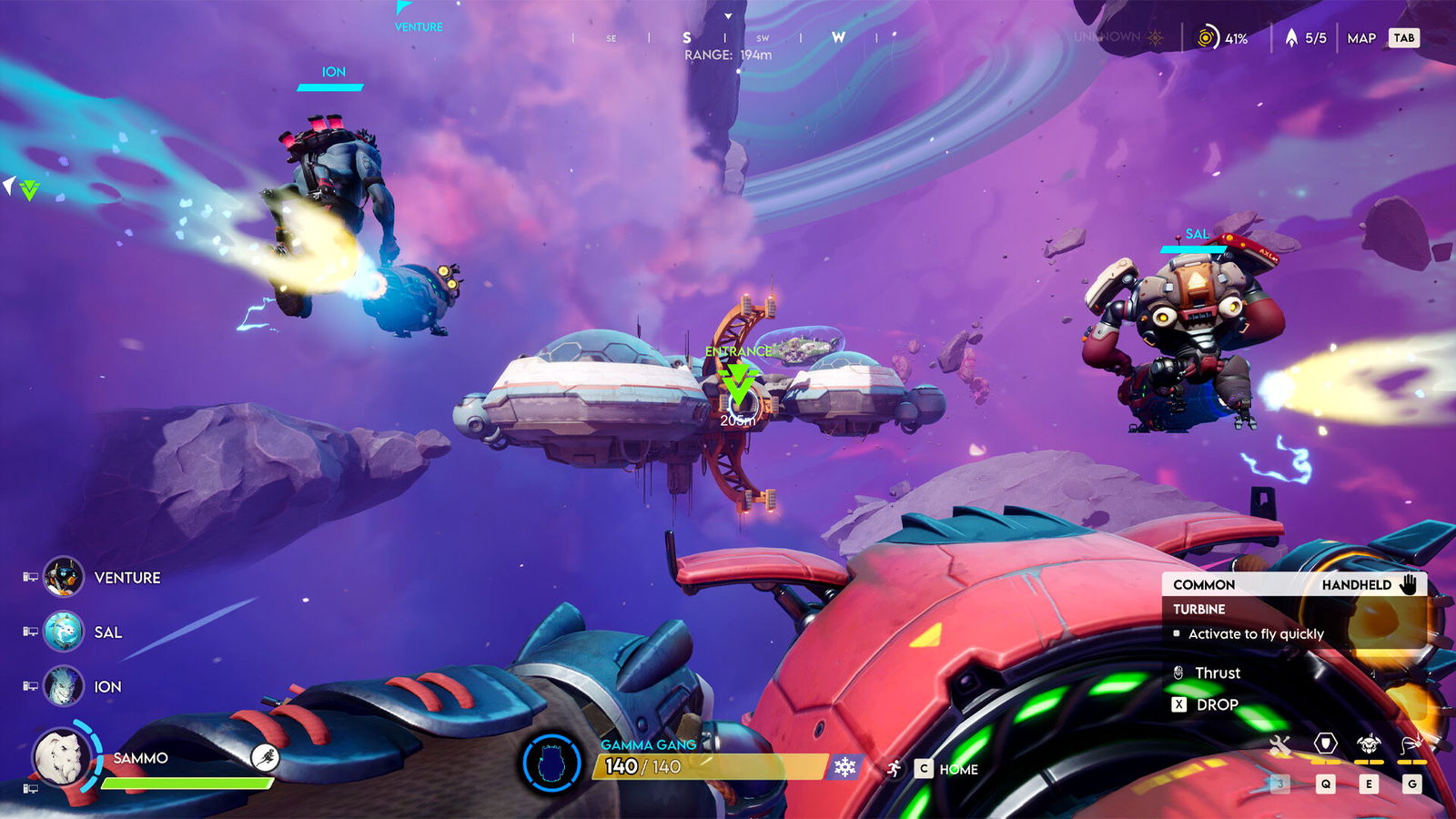
Fighting through ruined frigates or space stations to complete mini-objectives in order to find ship upgrades is an exciting race against other players, constantly hoping to stay one step ahead of them. Engaging in ship combat in Wildgate is tense and engaging as you and your team work together to face your opponent while keeping your own ship from falling apart. And if you’re daring enough to try and board an enemy ship, you can engage in some stealthy sabotage, or straight-up PvP combat.
Plus, there are a lot of little moving parts that make Wildgate a pretty thoughtful game. Players will need to pilot a little probe around the map to see local landmarks, all-important ship resources, or possibly enemy ships. However, these probes can tip off other players, and if they’re better equipped than you, it can mean an early defeat. Not only that, every Prospecter has different abilities, so how your team is built can really make the difference in the grand scheme, which is a little harder to pin down if you’re jumping into games with randoms.
“Engaging in ship combat in Wildgate is tense and engaging as you and your team work together to face your opponent while keeping your own ship from falling apart.”
Which actually brings me to one of my main criticisms of Wildgate. The random nature of it is a double-edged sword that really cuts both ways. Sometimes you get into a game, and it can be a long, interesting match; other times, one ship gets really strong at the start and starts everyone out as quickly as they can. Despite Moonshot Game’s desire to have fewer games end in crew wipes, the game isn’t particularly balanced in a way that disincentivizes that mode of play—I think in all the games I played for the purpose of review, only one or two were won by getting through the Wildgate with the Artifact.
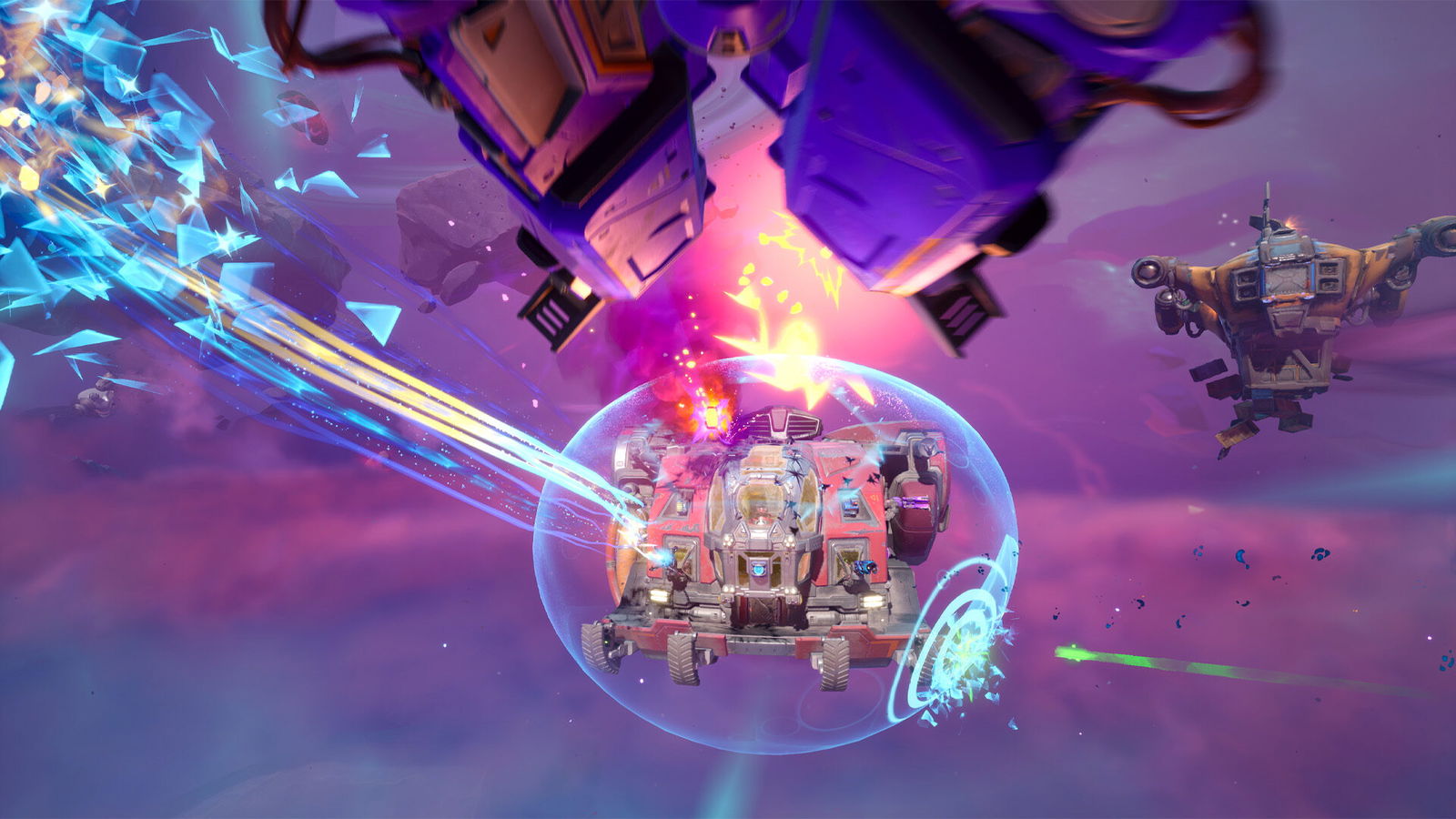
I know it’s meant to be chaotic, but it’s not particularly fun when, only four minutes into a game, you see notifications that two teams have already been taken out, and you know exactly how the match is going to shake out. I think a better way of approaching this would’ve been to restrict combat to Points of Interest, encouraging players to work with their teams to fight off Prospectors going after their loot. Or maybe if ship-to-ship combat was locked until one team secured the Artifact, and there was a timer on when the Wildgate activated.
“Wildgate has a really pretty aesthetic with fun character designs that are a bit more on the cartoony side, but full of personality and detail.”
This would still push players to explore and gather as many ship upgrades as they can, but make the fight feel much more on the ground and personal. Then the final flight to the Wildgate would be a much more intense moment as every player is fighting to try and get the Artifact from each other—instead of one or two players just picking everyone off in the early moments of the game, or players just going for team-wipes in general and not even bothering with the thing that the game is named after.
However, like I said, the game is unpredictable by nature, and it doesn’t exactly break the game or reduce the fun in significant ways. The foundation is solid enough that Wildgate still works even at its most basic—and if everyone’s kind of on the same page, then everyone knows how to play around certain styles.
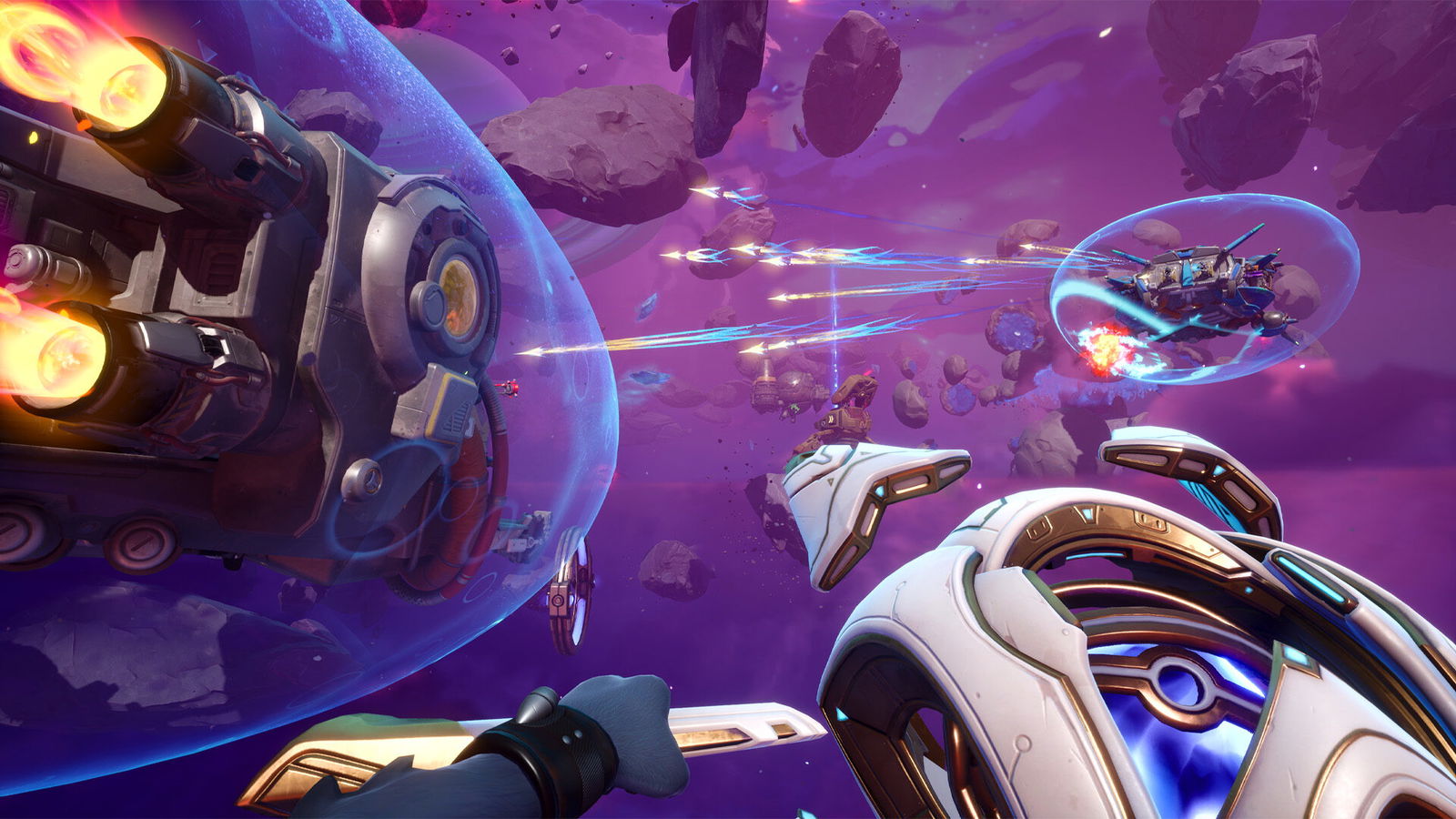
Visually, Wildgate has a really pretty aesthetic with fun character designs that are a bit more on the cartoony side, but full of personality and detail. The Typhon Reach itself is a beautiful anomaly filled with cosmic hues of blue and purple, offset by the bright red of stars or magma globules. There’s a lot of variety in environments that really make the Reach feel like a place outside the bounds of space, and it adds a lot of fun to the world.
Audio is equally enjoyable with character voice lines that do a lot to give other players a sense of what’s going on if you should choose not to utilize voice chat, while also adding a lot of personality to the individual characters. Music ranges from sweeping, bombastic orchestral themes to ethereal lo-fi synths that really emphasize the cosmic grandeur.
Wildgate is a pretty fun game, but it’s also one that is somewhat at the mercy of its players. I think both fans of cooperative PvP and newcomers alike will definitely find something to enjoy here. It’s an ongoing process, and I hope Moonshot Games does a bit more tightening in the coming months to really bring this game to its fullest potential.
